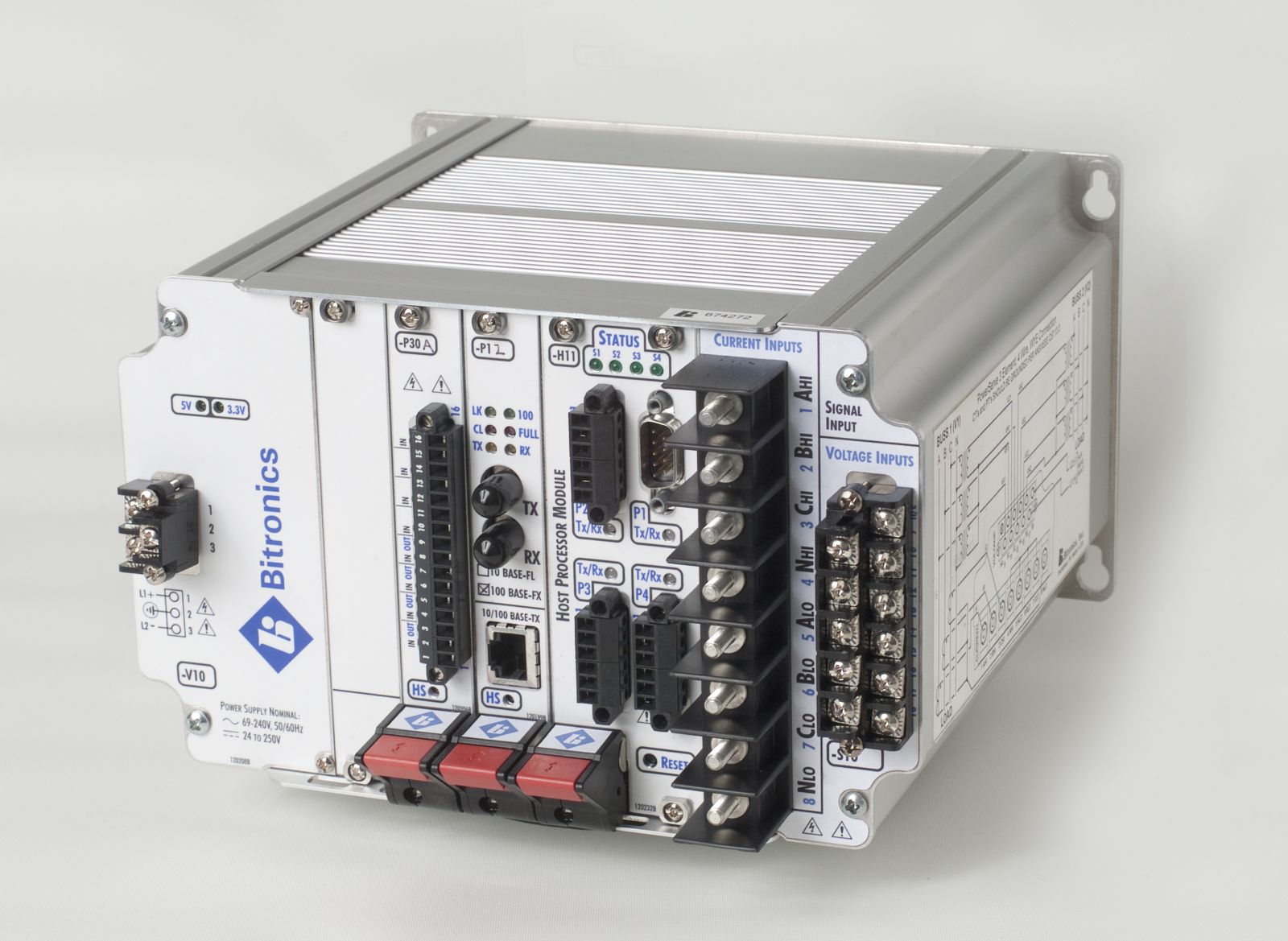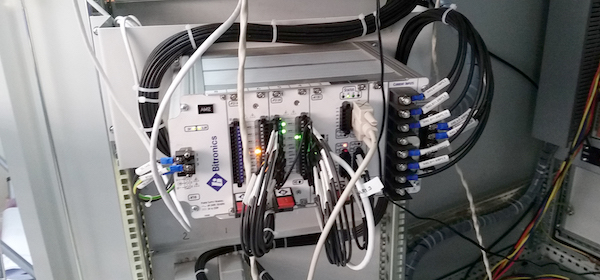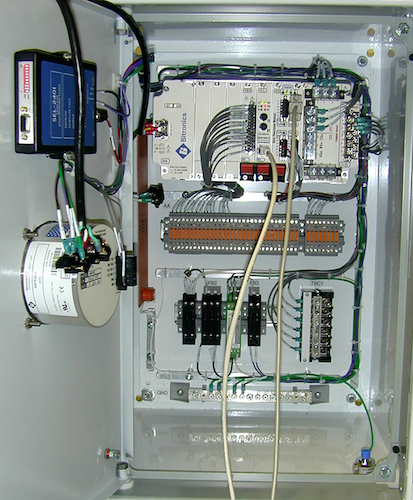Retrofit Solution Complies with Approaching NERC Requirements
Utilities are facing an upcoming 2022 deadline from the North American Electric Reliability Corporation (NERC), whereupon they must fully comply with an updated protection and control standard (PRC-002-2) for disturbance monitoring and reporting requirements for transmission and generation systems. The first milestone is 50 percent compliance by January 1, 2021, followed by 100 percent compliance by July 1, 2022.
The objective is to be able to standardize regional reliability requirements. This requires utilities to install Disturbance Monitoring Equipment (DME). The data collected by this equipment enables NERC to conduct forensic analyses of power failures to detect the causes in order to improve the safety and reliability of power delivery management.
 The NERC standard requires a continuous, high resolution 10-day recording of up to nine measurements per line of per-phase volts and amps, total MW and MVARs, and frequency. In addition, disturbances of interest must be archived for three years.
The NERC standard requires a continuous, high resolution 10-day recording of up to nine measurements per line of per-phase volts and amps, total MW and MVARs, and frequency. In addition, disturbances of interest must be archived for three years.
DME, as defined in the PRC002-02, must monitor Sequence of Events Recording (SER) Fault Recording (FR) and Dynamic Disturbance Recording (DDR) data. SER and Fault Recording functions are already well understood and widely deployed throughout the industry, but the DDR function is relatively new, and generally available in more expensive digital fault recorders (DFRs).
Although the majority of 230kV and higher voltage substations are likely already constructed with DFRs, the requirement for DME placement is based on the MVA short-circuit capacity of the bus, and so includes some lines down to 100kV. That is a voltage level where DFRs are not typically part of the original design.
In those locations, it may be necessary to add recording capability to an operational substation where there may not be room to retrofit a traditional DFR, and where pulling new CT, PT and I/O cables to one location would be a major undertaking.
Traditional microprocessor-based protective relays are also able to perform fault recording, but typically do not have the memory to monitor and store continuous flows of information for 10 days (as required by the PRC standard).
Depending on protective relays to provide DDR data is clunky, expensiv,e and maintenance intensive. Even if a utility could stream all the data from the relays to a central computer in real-time, the bandwidth required is massive, and the amount of storage space needed would add to the cost.

Utilities, therefore, have a need for simplified, economical solutions that can be retrofitted into existing substations to ensure compliance with PRC-002-2. Between relay-based recording and DFRs, one solution includes small, three-phase, single-line devices that can utilize existing CTs and PTs that are already routed to protective relays. This approach is an attractive retrofit option that is more cost effective than installing full-size DFRs.
These Intelligent Electronic Devices (IEDs) are purpose built for this task, and only require the space of a relay. At least one solution on the market is compliant with NERC standards in SER, FR, and DDR recording: Operating at a rate of 30 samples per second, the IEDs capture frequency, total watts and VARs, and all three phases of volt and phase amps.
A specific challenge of the new NERC standard is preserving 10 days of continuous DDR recording data. In the PRC-002, R8 distinguishes continuous DDR recording from triggered DDR recording (continuous is preferred).
IEDs resolve this issue by supporting multiple logical recording functions in each unit. Each logical recorder includes two independent fault recorders, two independent disturbance recorders, a trend recorder, and a SER recorder.
 The various logical recorders in the IEDs are able to capture data with varied duration, range, and resolution. They can also be triggered by entirely different criteria, and can be programmed to operate simultaneously or independently. Because each logical recorder requires a few seconds to convert the data and store it in non-volatile memory, the disturbance recorders are run in alternating hours, producing a sequence of COMTRADE (Common format for Transient Data Exchange) files, that are each one hour in duration.
The various logical recorders in the IEDs are able to capture data with varied duration, range, and resolution. They can also be triggered by entirely different criteria, and can be programmed to operate simultaneously or independently. Because each logical recorder requires a few seconds to convert the data and store it in non-volatile memory, the disturbance recorders are run in alternating hours, producing a sequence of COMTRADE (Common format for Transient Data Exchange) files, that are each one hour in duration.
By allocating sufficient memory to store 240 one-hour-long COMTRADE files, no data is lost. Additionally, a circular buffer is created that resides on the unit with new data overwriting old data after ten days. In other words, the DDR data doesn't need to be streamed in real time across a network to a separate computer. It doesn't even need to be downloaded, organized, or archived, except when NERC requests the data. At that point, only the data in the range of time NERC requests needs to be downloaded.
Not only do the IEDs provide all the recorded data required for PRC-002-2, they are also expandable, and can provide additional real-time data to Supervisory Control and Data Acquisition (SCADA) systems with tremendous accuracy. The IEDs can be configured to perform power quality functions not available in a protective relay, thereby effectively operating as a substation SCADA recorder device. In this way, the unit can provide more information on current and power than a power quality meter, which is usually focused mostly on voltage anomalies.
As utilities assess their options for compliance with the NERC standard, the emergence of the IED-based distributed event recording model sits between protective relays and DFRs on the recording spectrum, offering better recording capabilities than relays and lower costs and easier deployment than DFRs.
Bryan Gehringer is Senior Application Engineer at NovaTech, a provider of IED solutions deployed in over 1200 U.S. utilities.
NovaTech | www.novatechweb.com
Author: Bryan Gehringer
Volume: 2020 September/October








